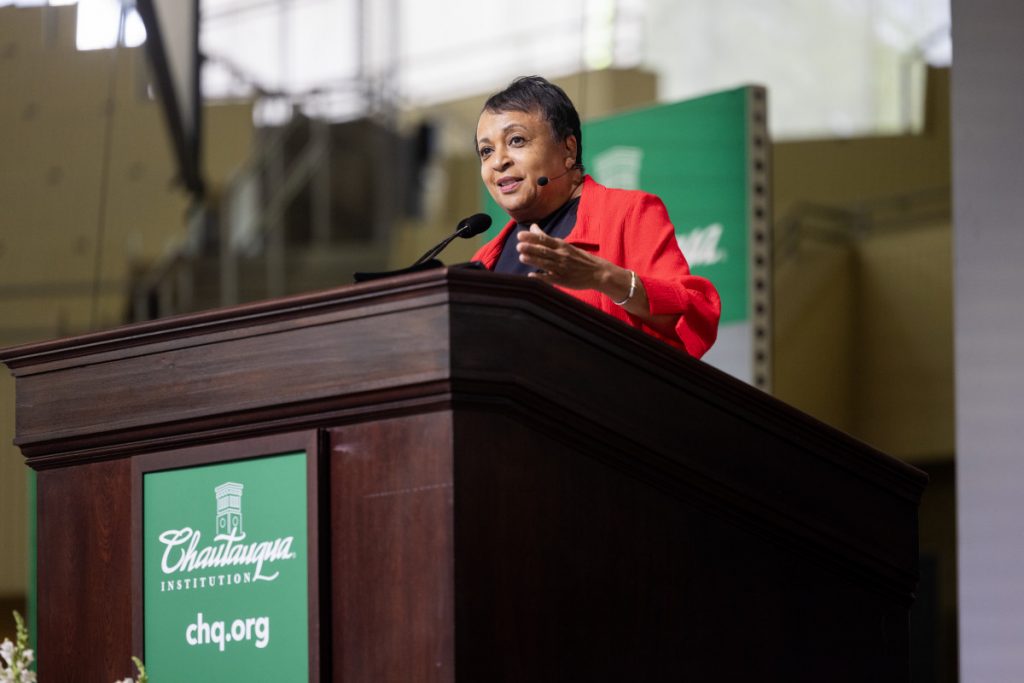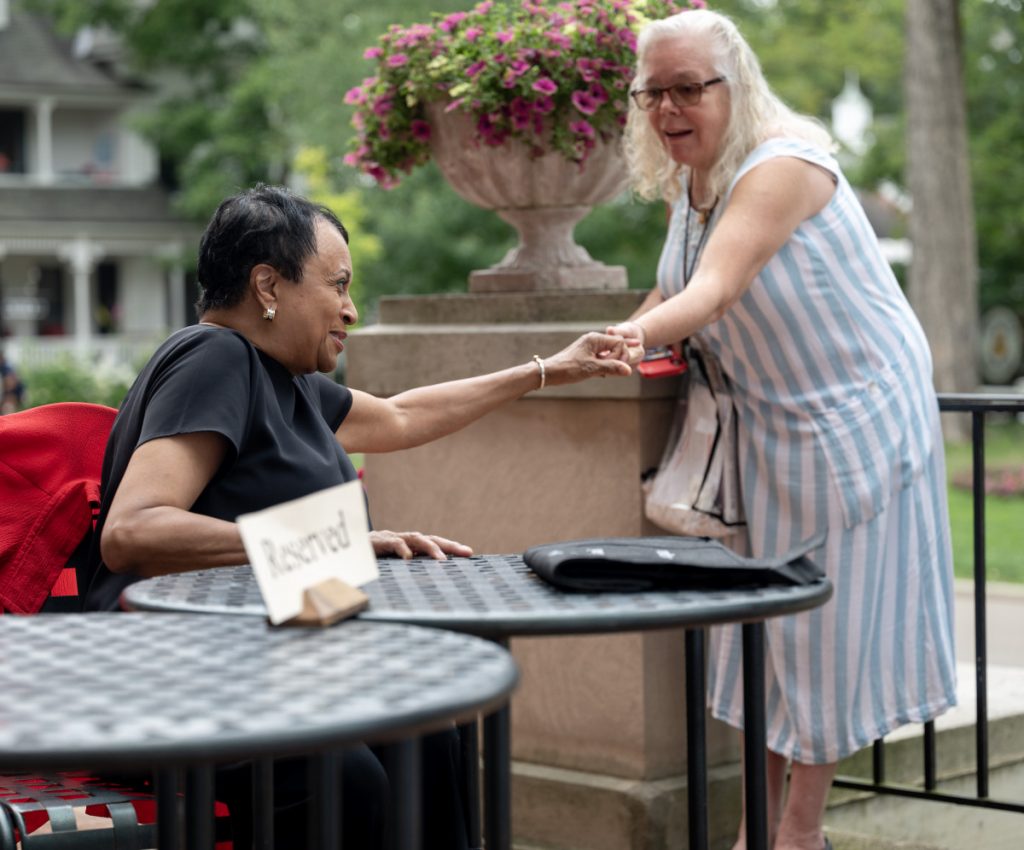
Alton Northup
Staff writer
Librarian of Congress Carla Hayden calls herself “an accidental librarian.”
“We suck people into the profession,” she said.
In the early 1970s, Hayden was working a temporary job as an associate in a storefront library on Chicago’s South Side. On her first day at the branch, she walked in to see a coworker on the floor reading to children with autism.
“I learned so much right there about what it means to have that type of facility in a community,” she said.
She soon enrolled in librarian school, launching her on a storied career as the former CEO of Enoch Pratt Free Library in Baltimore; former president of the American Library Association and – currently – the 14th Librarian of Congress. She discussed the role of libraries in communities and her personal experiences at 10:45 a.m. Friday in the Amphitheater to close the Chautauqua Lecture Series Week Five theme, “Infrastructure: Building and Maintaining the Physical, Social and Civic Underpinnings of Society.”
That temporary job in Chicago was not her first experience with a library. As a child, a librarian in New York City handed her Bright April, a 1946 book by Marguerite de Angeli, which tells the story of a young Black girl named April who, like Hayden, was a Brownie in the Girl Scouts.
“It was the first time I saw myself in a book,” she said. “We tell young people that books are so important. … If it’s so important but you never see anybody who looks like you or thinks like you, what’s that tell you?”
Hayden said librarians have the power of putting the right book in the hands of the right child, a responsibility that has guided her career. Lately, she said, this responsibility has come under attack.

She recounted her visit to the ALA Annual Conference last month, where librarians from all over the country gathered. Many there felt disheartened as book bans spread across the country, she said, leading libraries to face harassment and threats. States such as Indiana and Arkansas have even passed laws that allow for the criminal prosecution of librarians.
“When there are discussions about restricting what people can have access to, you are really looking at an uncivil society,” Hayden said.
Libraries are the antidote to incivility, she said.
When demonstrations and violence broke out in Baltimore after the 2015 death of Freddie Gray, an Black man mortally injured while he was in a police vehicle, the city advised her to close the library and board its windows. Hayden refused.
“What signal is that to the community?” she said. “On the night that all of the unrest happened, people from the community stood in front of that library to protect it, and it was not damaged at all.”
Among the people the library served during that time was a young man who used the internet to file a job application. Libraries are more than a place to borrow books; they are “palaces for the people,” she said, borrowing the title of a book by Eric Klinenberg.
As society changes, libraries adjust to meet the needs of their communities. Nowadays, people can borrow sewing machines, tools, WiFi hotspots, business clothes and even traffic cones.
“Your library card is your ticket to anything,” she said.
Hayden’s primary mission as the librarian of Congress is expanding access to the library’s catalog, which is the largest in the world. She has ushered in an era of collaborating with local and state libraries through live programming and digital collections.
It is a mission deeply rooted in her groundbreaking role as the first woman and first Black person to hold her position.
“The personal significance for me was that people who look like me were once forbidden by law to learn to read,” she said.
Libraries were once segregated, and often towns even had separate branches only for Black people that held fewer books. In 1961, The Tougaloo Nine, a group of Black students at Tougaloo College, marched to a white-only branch requesting books from their catalog. The following year, the ALA changed its guidelines to require member libraries to be open to everyone regardless of race, religion or personal belief.
Hayden said there are lessons to be learned from that time in history.
“We’re at a stage where there are threats to freedom of expression,” she said. “Everyone should have the right to read, to choose and to know.”




